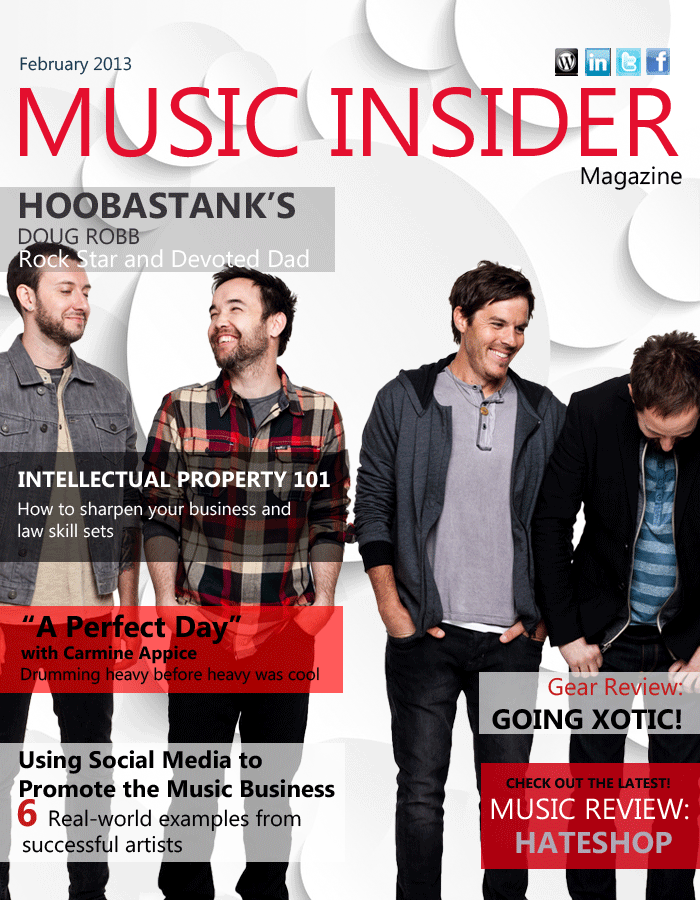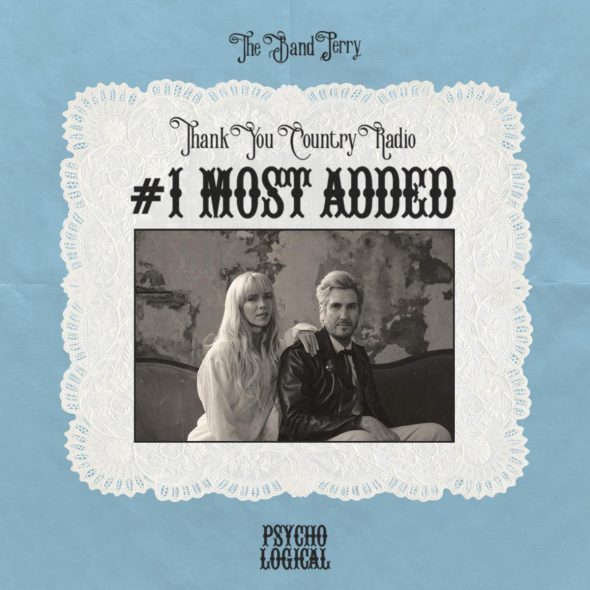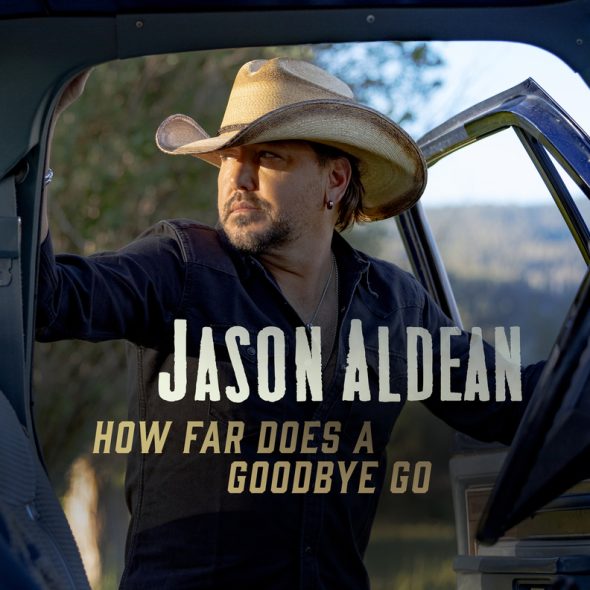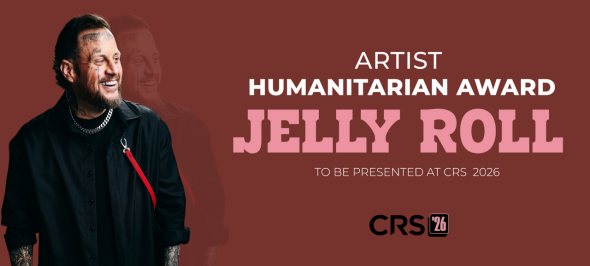by Brian McKinny, editor, Music Insider Magazine
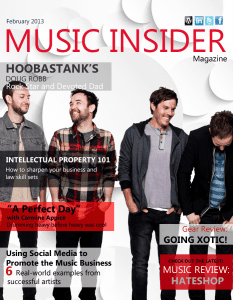 Doug Robb is a regular guy by most anyone’s standards. He’s married, has a 2 1/2-year-old daughter whom he adores, loves sports and is an avid motorcyclist. When I caught up with him recently, he was at home watching his daughter while repainting his kitchen cabinets, doing normal, everyday, run-of-the-mill stuff. But there’s something about Robb that sets him apart from the rest of us regular guys: he’s a bonafide rock star.
Doug Robb is a regular guy by most anyone’s standards. He’s married, has a 2 1/2-year-old daughter whom he adores, loves sports and is an avid motorcyclist. When I caught up with him recently, he was at home watching his daughter while repainting his kitchen cabinets, doing normal, everyday, run-of-the-mill stuff. But there’s something about Robb that sets him apart from the rest of us regular guys: he’s a bonafide rock star.
Robb is the singer and one of the founding members of the band Hoobastank from Agoura Hills, California. Hoobastank has had a long, steady career of hits like “Crawling in the Dark,” “Running Away,” and the chartbuster, “The Reason.” The band released, “Fight or Flight” in September 2012, and is planning its next tour.
I had the pleasure of talking with Robb about where the band has been — from Tokyo to Iraq and back — how they got to where they are and where he sees them going. The future is bright for Hoobastank: “The Guitar Center Sessions” show is about to come out, and soon they will set off to support the new album with a full-on tour.
MIM: How did you meet guitarist Dan Estrin and how did the band initially form?
Doug Robb: I went to high school with Dan. I met him when I was a junior and he was a sophomore, and we had the same auto shop class. I knew at the time that he was into music. I think our band and guitar-string stickers on our notebooks and folders gave that away. We were both in separate high school bands, and we had a mutual friend and started hanging out.
Our first “official” musical endeavor together was a battle of the bands that our high school put on back in 1993, my senior year of high school. There were a handful of bands at our school, not as many as I feel like there are around here now. Both of our bands played, and that was sort of how we were introduced to each other, musically speaking. It wasn’t really a competition, though. We lived in suburbia, about 35 minutes outside of Hollywood, and there was really nowhere else to play. I forget who actually set the battle of the bands up – it might have even been Dan, or somebody in his band who put it together out of a need for a place to play, and for our friends to watch.
MIM: What was the local music scene like in Agoura Hills when you were growing up there?
Robb: There were so many bands at that time in and around Hollywood and the San Fernando Valley that we got to know through just playing. We went to high school with a few of the guys from Linkin Park. They were a couple of years younger than us, and we were friends with them long before any of them took up an instrument.
It’s the same with some of the guys from Incubus. I know Dan has known them since middle school. They were just regular neighborhood kids. There are a lot of bands from this area. Eric Bruno, the guy who basically runs AWOL Nation is another local guy, but he was in something like three other bands.
People used to ask us, “What’s in the water out there?” because there are a lot of signed, national acts that came from a 10-mile radius. I don’t think we were anything special. I feel like Record companies are kind of like sharks, you know. When one band gets a deal and has some success, they all raid that area for similar types of styles, and try to make a buck, so it ended up that a lot of our friends inked deals, and some were more successful than others. But as far as the scene changing, I don’t know. It felt kind of like a family back then. You’ve got to remember, this was around ’95 to 2000 when we did all of our unsigned “band building,” playing all over Los Angeles.
We knew all the bands playing around the area at the time — it was like a fraternity of bands, musicians and friends. It’s hard for me to say how much or what has changed, because I view it now from a different perspective. I hear things from fans and people who come to shows all the time, but I can’t really tell you how it’s different now, because I’m the one that’s on stage. Just like any music scene, it’s cyclical. Sometimes the bands are really good, sometimes not so good. But things always come around.
MIM: Who would you say are your major musical influences?
Robb: For me personally, the most obvious influence is Faith No More. It may not show in our music at all, but when you’re in high school, you’re probably at your most impressionable as far as music goes, and I was so into Faith No More, and pretty much all the Seattle grunge bands — Soundgarden, Alice in Chains, Nirvana, Pearl Jam. Those bands shaped me, musically speaking. Like I said, it may not show in what we do today, but it’s still my favorite music to listen to when I’m on my own.
I kind of feel like that moment in my life, from 93 to 97 was when I was the most impressionable, and like a sponge as far as music… It’s tough to say but that’s probably when music meant the most to me, at that point in my life. It’s just the way it is, I was searching for something through the music. Whenever I get asked the “what one CD would you want to have on a desert island” question, I always say FNM’s “Angel Dust.” It’s really hard to say who your favorite person or band is, but if you put a gun to my head and ask me who my band and favorite singer are, I’ll say Faith No More and Mike Patton.
I just always enjoyed how the band could play something so heavy and scream, sing and make the most ridiculous sounds, and then turn around and do “Easy” (by Lionel Ritchie) and get away with it — they wouldn’t be ridiculed. They were so cynical. They mocked a lot of popular music, and maybe I was just a dick when I was younger, but I found that really attractive.
I saw those guys on the “Angel Dust” tour, the “King for a Day Tour,” and all these shows were at smaller venues, and the shit that they would do on stage … I was like, “These guys are awesome.” He never sang the same song the same way twice. He never sang it perfectly — he always sang it differently live than it was on the CD, but I always thought it was cool.
Maybe, subconsciously he was singing it to his fans — something like, “You love this so much, and you know it so well, I’m going to sing it in a totally different way, just for you …” Or maybe it was just my teenage angst …
To go from “The Real Thing” to “Angel Dust” was a huge experimental jump, and it totally lost a lot of their so-called fans, but it cemented them, as far as a rock influence. All these bands that people were categorizing in the early 90s as “new metal bands” — Korn, the Deftones, System of a Down, Incubus and ourselves — all those bands I just named wouldn’t exist without Faith No More, and more specifically, without Mike Patton, because all those bands and a thousand more just like them ripped off and then did something with what Mike (Patton) did. He paved the way for all those bands, including Hoobastank.
MIM: Every time you release a new record, you risk losing current fans. How do you keep that from creeping into your mindset and driving your creative process?
Robb: Honestly, you just have to like the stuff you’re doing. Fans can be fickle sometimes, and not everyone will like the new stuff you do, but you replace those fans with new people who do enjoy your new music. You have to keep the worry about whether people will like your music or not out of the creative process. If you’re not pleasing yourself with your music, then you won’t be able to please anyone else.
MIM: How would you describe Hoobastank’s music, and how it has evolved from your first release to your latest release, “Fight or Flight?”
Robb: I’ll give you what I think is a cop-out answer and call us just a melodic rock band. I used to hear early on, maybe during the first couple of albums, people calling us romantic metal, which I thought was pretty funny, because I have a lot of relationship-based lyrics, but some of it is really heavy and some of it’s not.
I think the song, “The Reason,” I don’t want to say ruined that image of us as an alternative rock band. But even before that song, we definitely had the active-rock, alternative-rock band image. Nobody would have called us a romantic-metal band then. But we have some heavy songs, and I think in general, at our live shows, the perception is still high-energy rock; there’s a lot of aggressive stuff going on, and that song really changed the perception of the band, although we still see ourselves the same way.
We’ve always had some mellow songs on our records, but they were never released as singles, and they never really got that big. We just never thought that they would be picked as singles. I remember when we were recording “The Reason” album, and we gathered around with our management and band members and focused on what we thought might be the first single, the second single, the third, etc. … And nobody chose “The Reason” as a song. Nobody.
It was off all of our radars; it was just the slow song for that record. So we released a song that was up-tempo and heavier as a single, and we were already considering the next single, when radio stations, without being prompted by our record label or anybody else, started playing “The Reason.” on their own. So the record company saw that and got super stoked, and they said, “We’re going to release ‘The Reason” as a single. We want you to shoot a video.
I remember the band getting into a fight — having to go to New York, and having a big meeting with the president of the company, going, “Fuck that! First of all, it’s too early, we’re still working the first song; we don’t want the song to be the second single …”
But the ball had started rolling with radio stations wanting to play it, and it was either we had to fight the momentum or just roll with it. So it kind of happened on its own. I mean, what are you gonna do? Fight success?
MIM: How would you say your music has evolved since your first album, and what have been the biggest changes in the band, as far as how you approach your music?
Robb: There are myriad ways we have changed. Honestly, as performers, we’re tighter and better at what we do now than we ever have been, and you would hope that to be true after 15-20 years of playing music for a living. To me, that seems to be the most obvious change, evolution.
MIM: Does writing come easier to you now than it did when you started?
Robb: No, because I think we scrutinize everything more now. There’s a certain amount of innocence lost in the process. We know the game, so it becomes a little more practical than just some romanticized writing process. I also think that as individuals we’ve become less precious with our ideas. Early on, it was like “this is my idea, I don’t want you to change it,” and now it’s kind of like a free-for-all of writing.
Earlier on, during our first two records, songs were individuals’ songs: “That song is Dan’s, and this one is mine.” The way the writing between us is now, I don’t even remember who wrote what. Everyone just comes together, building, and that comes with a little bit of maturity and being less stubborn and not so personally offended if someone says, “Why don’t we change this to that?”
It no longer feels like someone telling you your kid is ugly and dumb! Also, I think that musically we’re not 25 years old anymore. Honestly, we’re not writing for 25 year-olds anymore. Our music has a little bit of an older, more mature feel, but I think it is a more natural than conscious effort to play more mature-sounding music. We’re just older guys, and we’re playing more stuff that we would listen to rather than just fast tempos and the heaviest riffs we can think of.
MIM: What really sparks your creative juices to flow? What inspires you to write?
Robb: It could be anything. I mean, I’ve heard commercials and went, “Whoa, that’s kind of a cool ending! What made them think of that?” And I’ll pick up a guitar and go, “Oh, OK! That’s kind of cool,” and that sets me off onto another direction.
Music writing, for better or for worse, is almost like homework. When it’s time to write, it’s time to write. You’ve got to sit down and start writing. Go to work. Grab your laptop or a notepad, or whatever, and pick up a guitar and lock yourself in a room with some guys and see what happens.
MIM: What is your favorite song on the new album, “Fight or Flight,” and why is it your favorite?
Robb: I have a sentimental favorite, and I also have a “listening” favorite. The sentimental favorite is a song called, “Magnolia,” named after my daughter. It’s a personal song. The lyrics are pretty straightforward. My daughter is about two and a half now, but the song was written when she was still very small. Embedded in the song is her 10 1/2 week-old in-utero heartbeat that I recorded off my wife’s stomach on my computer just for fun. Magnolia was just old enough for me to find the heartbeat.
The recording sat on my computer while months went by, and we wrote the song. When it was done, I called up the mixer and said, “Hey, I’ve got this file, I want to see if you can slip it into the song, maybe, just for ambiance during the breakdown, or something like that … So I sent him the file, and he calls me back and he says, “Did you quantize this, because it seems lined up.”
I told him I hadn’t touched it since recording it. He said, “Well, it lines up perfectly with the tempo of the song!” So in the beginning of “Magnolia,” there’s this whooshing sound that sounds like it could be a guitar effect, but it’s the heartbeat of my daughter. I thought that was pretty cool.
So every time I hear that song, I listen for it. What’s pretty funny, too, is that when my daughter was old enough, and I’d be playing music in the car, I’d put the song on, and she’d always get really excited for that song. She’d start smiling and kicking her feet and stuff like that, so I wonder if she subconsciously remembers that whooshing sound.
My listening favorite is a song called “Slow Down.” I like how the melodies turned out, and I like the bridge on out, how it changes. It’s nothing scientific. I just really like the song and how it turned out. It’s funny, because I really don’t listen to our music. I mean, why would I? I hear it all the time — every time we play a show or do a rehearsal.
MIM: What is your favorite part of being in Hoobastank? What makes the experience special?
Robb: I think it’s evolved over the years. Initially, it was just so exciting to be playing music. It’s like a drug, you get so addicted to it, and it’s such an adrenaline rush. And when it got to the point where we could make a living doing this. All the experiences were new, like our first time touring, our first time playing “this size” venue, and the next bigger size venue, and then playing festivals. Everything was full of new experiences. We’ve played every size venue imaginable, from coffee shops to in front of the Colosseum in Rome, so I really don’t know where else there is to go — well, I’d still love to play on the Great Wall in China.
Nowadays I sit back and think about how unbelievably lucky I’ve been to make a living doing this and basically hang out with my friends for the last 20 years and not having to go to a real job. That, to me, is the luxury of this.
When I’ve got to go to “work,” I’m going to hang around with my best friends, and we’re going to fuck around for hours, and we’re going to play a show, and then we’re going to fuck around some more, and then we’re going to do it all again tomorrow.
When you’re younger, you’re going, “Yeah, this is awesome,” but I don’t think I really understood how lucky we all are to have the experiences and do what we do. Every once in a while, we’ll be sitting around and look at each other like, we’re on the clock right now, and we’re riding the bullet train past Mount Fuji on our way to the next show, and we’re “working” right now. That, to me, is the best part about doing what we do, and being in this band.
MIM: When you are writing new material, do you mainly write about personal experiences, or try to convey more of an abstract idea?
Robb: I think it starts from somewhat of a personal experience. A lot of times, an abstract idea, the process of lyric writing itself, will turn into a personal experience. “Oh, I get it, you’re talking to me, and you’re trying to convey this message, but it’s really about this one time.” And a lot of times, I’ll talk with my friends and family about stuff, and it’s not always roses. You know, we’ll talk about hard times, fights, arguments that they’re going through. I’ll start to relate those stories to things that have happened to me, and they’ll turn into songs. At that point, it’s really starting with somebody else, and then I relate it to something that happened to me and go from there. I think it all does pertain to personal experience, but it doesn’t always start there.
MIM: What are some of the strangest places you’ve played on tour? Have you ever felt nervous about playing in any harrowing situations, here in the U.S. or abroad?
Robb: Well, not until last summer, when we went and did a USO tour in Iraq. That was the only time. We’ve played at a lot of places where I thought our music would never take us — we’ve done all kinds of stuff for the USO. We’ve played in Korea, Japan and all over the U.S., playing at different bases, and whatnot. But the USO asked us if we wanted to go play for the troops in Iraq for a week. And we were like, “Okay, sure. That sounds like a great experience,” and then literally all of us got cold feet the next day! We all said, “I don’t know. Maybe we should see just what this entails,” but at that point it was honestly too late, we had already committed. We had to sign waivers and a bunch of legal stuff saying basically that if we got killed, we couldn’t sue the government. We had to get measured up for body armor and helmets, and we were like, “Shit! What did we just do?!” It was kind of weird.
So we flew into Kuwait, played there and then got onto a C-130 to take us into Iraq. We played shows at these bases. For some of them, like in Baghdad, we had to scale down all our gear to the absolute minimum, basically what we could fit onto two Blackhawk helicopters. We would fly into these bases, over the city with M-60 machine guns mounted on these helicopters actively scanning for any threats, and then land, unload, set up and play this show for a bunch of generals and civilian defense contractors, and then we’d fly back at night.
A couple of times at other bases alarms went off, and we actually had to find shelter in one of the bunkers — there were bunkers about every 50 yards or so because of possible incoming mortar shelling. So that was the only time where we were like, “Dude, this is kind of gnarly, you know?!”
But we got to shoot some guns, so that was kind of fun. We went out at midnight, and one of the high-ups said, “Hey, we’re gonna go shoot up some stuff,” so we jumped into these two Humvees and went out to a firing pit, and we shot what looked to me like an AK-47 — I mean, I don’t know shit about guns. Then we shot an M-4 and what they called a 240-Bravo; it looks like an M-60, like a Rambo gun, you know?
I almost melted the barrel! I was holding it and firing away, not realizing I was holding the trigger down for too long. We also fired a .50 caliber M-2 machine gun off the back of the Hummers. It was pretty loud, pretty destructive. It was fun!
I remember actually standing on the Humvee behind the turret when our guitar player was trying to lock and load, and it just kept jamming, and I’m filming it, and then finally it goes boom, boom, boom, boom! And the kick from it was so strong I almost fell off the back of the damn truck. That thing was just so powerful.
MIM: Who in the industry would you like to work with next? Is there a particular producer or engineer whose work has really impressed you — someone you’d like to have produce/record your next album?
Robb: Yeah, I think the obvious choices are people like Rick Rubin. I mean, he’s been a part of a lot of bands that I’ve really enjoyed. The same goes for Brendan O’Brien Honestly, I’m not totally up to snuff, especially on who produces what. I’ve kind of checked out on the recording geek aspect of it. There was a time when I was all about it.
I research it when it’s time to start looking for a producer. I think I’m more interested in getting fresh ideas, too. I know there’s tons of new talent out there, but I don’t know if I actually know any of them.
MIM: When you start touring to support the new album, will you put your own tour together — grab some supporting acts and hit the road — or will you join any festivals on tour?
Robb: We’ve done some touring, off and on since July. But most of that has been on our own, doing a lot of international stuff as well. I think if I could snap my fingers and have my way, I would probably try to get us on some kind of package tour, so we could play for new fans, play for a different audience. Being part of a package tour would be my perfect scenario, but a lot of times that doesn’t happen, so you just have to figure out what’s available, and what’s best for the band. Festival and package tours are the most efficient way to expand your fan base. We also get the people who have heard us for years but have never seen us play. It’s a good opportunity to leave new fans with a good impression.
MIM: What do you do when you’re not recording? What are your personal interests outside of the band?
Robb: Well, being a dad, it’s kind of like all dad stuff with my daughter. I enjoy motorcycles and motorcycle riding. I love movies. Honestly, I could not live a more normal life, outside of my job.
Even on tour, before or after a show, I can’t think of a more normal guy. I watch a lot of movies. I’m not back stage snorting piles of cocaine or hanging out with groupies. I’m married and have a little daughter. The time for that stuff is long gone. Even when there was a time for doing stuff like that, our band was pretty mellow about it all. We were definitely mellower than your average college fraternity was.
I like sports! I’m an LA guy, so I’m a fan of all the LA teams. I’m a huge Dodger and Lakers fan. The Clippers are cool, but they’re kind of like the stepbrothers of the LA teams. I’m a Raiders fan because when I started getting into football, they were the LA Raiders, long before they moved back to Oakland.
MIM: It’s time for the quintessential, gratuitous desert island question: What five bands would you pick if you could only listen to five bands’ complete works, if you were stuck on a desert island?
Robb: Faith No More and Fiona Apple — there’s kind of a curve ball for you. I’ve just always been a fan of hers; I think she’s brilliant, lyrically. I think her voice is unreal. Especially on a lower lever, she’s kind of like a female Mike Patton in that she experiments a lot with sounds and in the way she uses her voice, and that’s cool.
Next, I would take Van Halen from 1978 to 1984, just because that was probably my first rock ‘n’ roll love — listening to Eddie Van Halen is what made me want to pick up a guitar, and the first album I ever got was a Van Halen album.
Next, I’d say Radiohead. I love Radiohead — not every single song, but more than a handful of songs from every album are on my playlists.
And I don’t know if you’ll get this pick, but I’m really into this band again right now, and it’s Soundgarden. I can’t stop listening to their song, “Bones of Birds.” I can’t stop listening to it, it’s on repeat. I downloaded it while we were in Japan last month, and I was listening to it on my computer — just the shitty little computer speakers with my bass players, and that song came on. I said, “Dude, that’s a really good one,” and we just played it over and over, and it’s now on a loop. I don’t know what it is about the song, but it’s just so good. It actually made me go back and start listening to all their older stuff again.
MIM: What lies ahead for you and the band?
Robb: In a couple of days, we’ll be airing a show we did a couple of months ago called “The Guitar Center Sessions.” It’s a full hour of us doing our thing, including interviews. It was done at the back room area the Guitar Center in Hollywood calls “The Vault” with their most expensive guitars, a stage and seating. It was fun. I’ve been to that particular Guitar Center about a million times, and I actually bought my very first amp there, so it was pretty cool to do the show there.
As for the rest, we actually have a meeting coming up next week, kind of a state-of-the-band meeting, to get together and strategize about the upcoming tour. But right now, I’ve got to get back to painting my kitchen cabinets …

